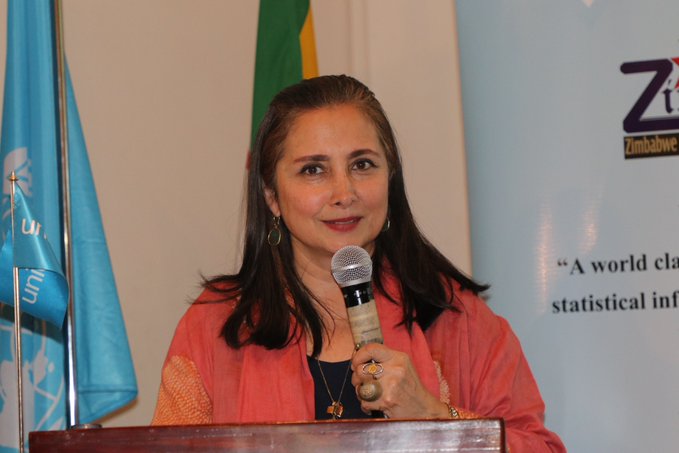The Zimbabwe National Statistics Agency (ZIMSTAT) unveiled the findings from the Zimbabwe 2019 Multiple Indicator Cluster Survey (MICS), the largest source of statistically sound and internationally comparable data on women and children worldwide, developed and supported by UNICEF.
The 2019 Zimbabwe MICS for which field work was conducted between January and April 2019 received funding from the European Union, UKAID, and the Swedish Government. MICS 2019 is the third of its kind in Zimbabwe following the household surveys conducted in 2009 and 2014. The survey findings provide disaggregated data to measure progress and assess gaps on key indicators in numerous thematic areas affecting women and children’s lives such as child and maternal mortality, fertility, child health and nutrition, birth registration, adolescents, HIV and sexual behavior, child discipline and domestic violence, early childhood development, education, and drinking water, sanitation and hygiene, amongst many others.
“MICS provides critical data to monitor Government programmes such as the Transitional Stabilisation Programme (TSP) running from October 2018 to December 2020,” said ZIMSTAT Director General, Mr. Taguma Mahonde.
Since its inception in 1995, 326 MICS surveys have been conducted by 116 countries generating data on key indicators on the well-being of children and women, and helping shape policies and programmes for the improvement of their lives. MICS is a major source of data for countries to measure progress on the 2030 Agenda toward meeting the Sustainable Development Goals..
“Due to the collaborative efforts of the Government and development partners, the country has registered great improvement in the areas of Maternal and Child Health with an impressive 25 percent decrease in maternal mortality” said UNICEF Representative Laylee Moshiri.” It is also important to make sure that the current hardships the country is going through at this time do not lead to a reversal of the gains made so far. This is a critical risk that threatens the development gains and therefore the lives of so many vulnerable children and women”.
For the 2019 MICS, the governance structure comprised of different stakeholders at different levels in key Government Ministries and Departments, namely ZIMSTAT, Ministry of Finance and Economic Development, Ministry of Health and Child Care; Ministry of Primary and Secondary Education, and Ministry of Public Service, Labour and Social Welfare.






